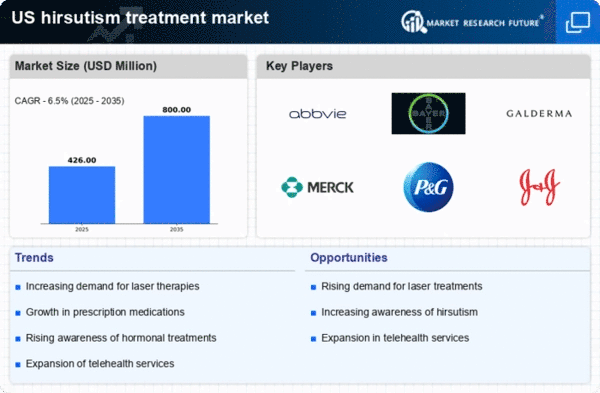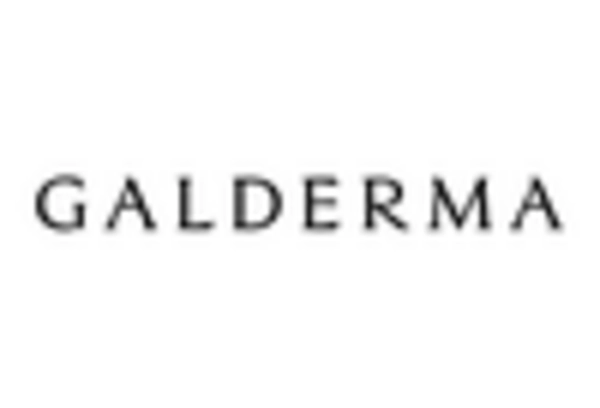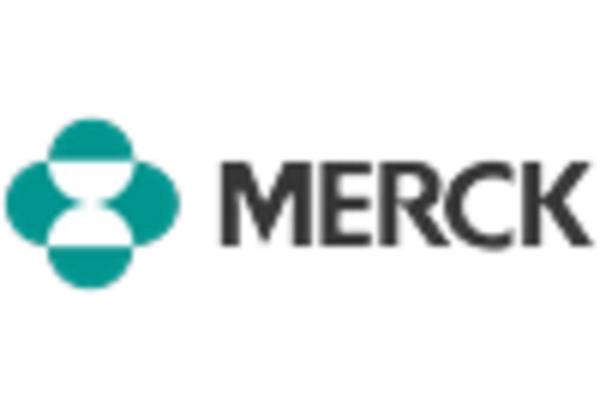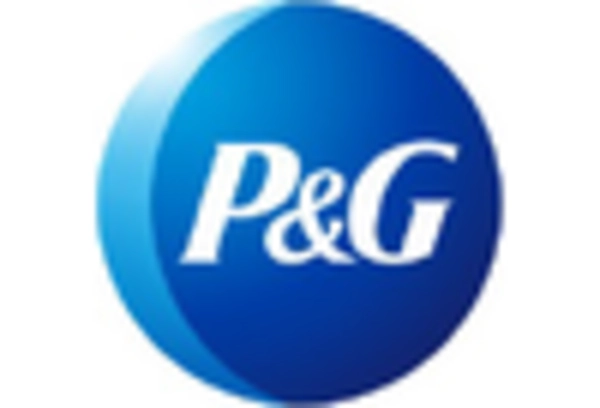Growing Awareness of Hirsutism
The increasing awareness surrounding hirsutism and its psychological impacts is driving the hirsutism treatment market. As more individuals recognize the condition and its effects on self-esteem and mental health, there is a rising demand for effective treatments. Educational campaigns and social media discussions contribute to this awareness, leading to more patients seeking medical advice. In the US, it is estimated that approximately 5-10% of women experience hirsutism, which translates to millions of potential patients. This growing recognition is likely to enhance the market for both pharmaceutical and non-pharmaceutical treatments, as healthcare providers are prompted to offer more comprehensive solutions to address this condition.
Focus on Mental Health and Wellbeing
The growing emphasis on mental health and overall wellbeing is influencing the hirsutism treatment market. As society increasingly recognizes the psychological effects of conditions like hirsutism, there is a shift towards holistic treatment approaches that address both physical and emotional aspects. Healthcare providers are now more likely to incorporate mental health support into treatment plans, which may include counseling or support groups. This trend not only improves patient outcomes but also encourages more individuals to seek help, potentially increasing the market size as more patients pursue comprehensive care.
Advancements in Treatment Technologies
Technological advancements in the hirsutism treatment market are significantly influencing its growth. Innovations in laser hair removal, electrolysis, and other hair reduction technologies are making treatments more effective and accessible. For instance, the introduction of new laser systems has improved treatment efficacy and reduced side effects, appealing to a broader patient base. The market for laser hair removal alone is projected to reach over $1 billion by 2026 in the US. These advancements not only enhance patient satisfaction but also encourage more individuals to seek treatment, thereby expanding the overall market.
Rising Incidence of Hormonal Disorders
The increasing prevalence of hormonal disorders, such as polycystic ovary syndrome (PCOS), is a significant driver of the hirsutism treatment market. PCOS affects approximately 6-12% of women of reproductive age in the US, often leading to symptoms like hirsutism. As awareness of PCOS grows, more women are seeking treatment options for associated symptoms, including excessive hair growth. This trend is likely to boost the demand for both medical and cosmetic interventions in the hirsutism treatment market, as healthcare providers focus on managing the underlying hormonal imbalances that contribute to hirsutism.
Increased Availability of Treatment Options
The hirsutism treatment market is experiencing growth due to the increased availability of diverse treatment options. Patients now have access to a range of therapies, including hormonal treatments, topical solutions, and advanced cosmetic procedures. This variety allows for personalized treatment plans that cater to individual needs and preferences. The expansion of clinics and dermatology practices offering specialized services further enhances accessibility. As more patients become aware of these options, the market is likely to see a rise in demand, with an estimated growth rate of around 7% annually in the coming years.
















